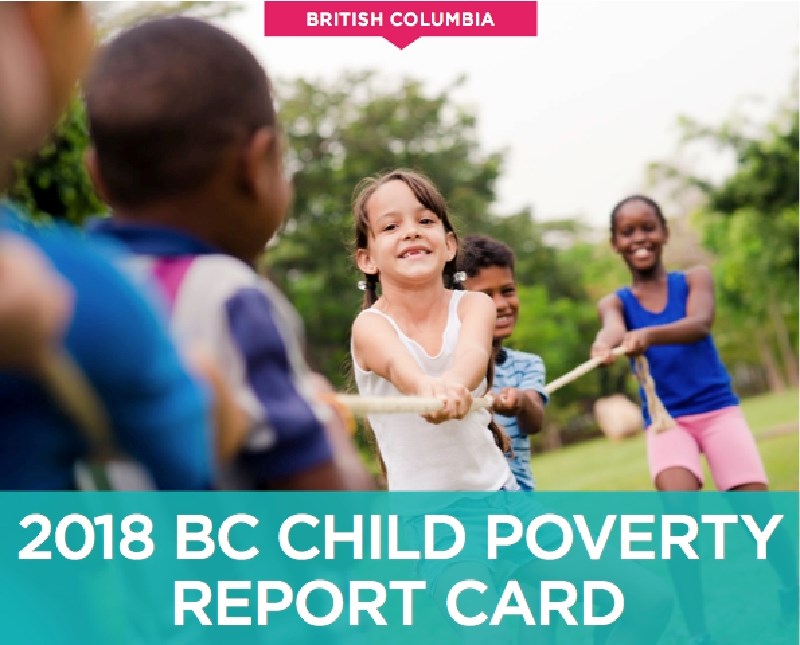One in five children is still growing up poor in B.C., a “profoundly disappointing” finding that underlines the challenge facing government anti-poverty efforts, an advocacy group says.
In its annual poverty report card released Tuesday, First Call said the latest data from Statistics Canada show that 172,550 children and youth were living in poverty across the province in 2016, the most recent year for which numbers are available.
B.C.’s child poverty rate, as measured by the Census Family Low Income Measure, is down slightly from 2015, but still above the national rate, the report says.
“It’s actually a very familiar story,” said Adrienne Montani, provincial co-ordinator with First Call. “We have one in five kids poor. That’s where we’re at and that’s what the data tell us.
“We still have a big problem with a very high level of child poverty.”
The situation is even worse for Indigenous and immigrant children and those in single-parent families, the report says.
Montani said that while some of the numbers are trending downward, the pace is “glacial” and there’s still a lot of work to do. “If we want to go to root causes, it’s because income inequality continues to grow,” she said.
The report found that children and youth are deprived of the security and supports they need to thrive, while wealth accumulates “in the hands of fewer and fewer individuals.”
First Call, which is a coalition of regional and provincial organizations, gave credit to the federal government for introducing a more generous Canada Child Benefit in 2016, which the report says is already having an impact.
The B.C. government, meanwhile, passed a poverty-reduction law that aims to cut child poverty in half.
“So now we’re waiting for the March plan,” Montani said. “We’ve seen some of the things we’ve been recommending — like the child-care investments and housing investments — coming through in the budgets already.”
First Call wants to see the provincial government boost welfare and disability rates and redesign the Early Childhood Tax Benefit to cover more children and double its maximum payout to $1,320 a year per child.
“If we see those things, then we’re optimistic that we’ll start to see the numbers coming down,” Montani said.
Shane Simpson, B.C.’s minister of social development and poverty reduction, said First Call’s report reinforces the government’s decision to focus its legislation on cutting child poverty.
“That’s where we’ll go over the next number of years,” he said. “We’re looking at a whole range of things in order to be able to accomplish the goals and the targets that we put in place in the legislation.”
Simpson said the government has examined the positive impact of the Canada Child Benefit as well as things that have worked in other jurisdictions.
“Clearly, we’re going to roll those out around the budget in February,” he said. “But we’re looking at all of these options.”
Simpson noted that the NDP government, which took power in 2017, already has taken steps that will have an impact on future numbers.
He pointed to recent investments in child care and affordable housing, as well as earlier moves to increase the minimum wage and wipe out fees for adult basic education and English-language learning.
“The response is going to be a government-wide response,” he said. “If it’s just my ministry, it’s not going to work. It really does have to be a whole number of ministries coming together. That’s what we’re doing right now.”



